The very important role of the body’s nervous system is to receive signals from the environment, interpret those signals, and translate that information to the body. In other words, your nervous system serves the essential function of controlling, regulating, and communicating with all systems of your body. So, what causes a less than optimal functioning nervous system? While there may be several contributing factors that may lead to nervous system dysregulation, we will discuss what sends a nervous system into overdrive, how the nervous system works, and dive more into some common nervous system disorders and treatments.
If you are suffering from stress, anxiety, headaches, or any other symptoms or illnesses associated with an overburdened or malfunctioning nervous system, contact Atlas Total Health Chiropractic by calling (866) 668-0108 or contacting us online to schedule your consultation. Discover what we can do for you to get you feeling better and restore you to optimal health.
Nervous System Disorders and Treatments
For the purposes of this post, we will be focusing on the autonomic nervous system, otherwise known as the involuntary nervous system. The involuntary nervous system can be split into two divisions, the sympathetic and parasympathetic. The sympathetic nervous system is most commonly associated with being in fight or flight mode, while the parasympathetic handles activities such as resting and digesting. Both systems are vital to the survival and healthy functioning of your body. However, it is ideal that an individual remains mostly in parasympathetic mode.
Yet, due to the large amount of stress and stimuli individuals commonly receive in today’s society associated with a faster pace lifestyle, many individuals are found stuck in sympathetic overdrive, leading to anxiety, fatigue, irritability, headaches, and more. Whether through continued exposure to toxins or from stored trauma and emotions, the body can hang onto stress that can affect how the body processes and interprets other incoming stressors. As we are exposed to toxins every day through the air, water, pesticides, microplastics, and more at a rate that is significantly higher than before, it is easy for our body to become consistently stressed and placed into sympathetic overdrive. When individuals are stuck in a state of sympathetic overdrive, they are more likely to be prescribed pharmaceutical medications to manage associated symptoms, overeat, use drugs or alcohol, and other habits related to excess stress that may further compound the issue.
What Can Be Done to Help Regulate Your Sympathetic Nervous System?
Aside from rest, exercise, staying well hydrated, lowering stress levels, meditation, and exercise, chiropractic care can help to put your body into a parasympathetic state while addressing stored bodily tension. Chiropractors like to focus on maintaining optimal function of the nervous system. This is because the nervous system:
- Regulates every process of the body, including breathing, digesting, thinking, seeing, feeling, and more. If, through ongoing maintenance, your nervous system is operating at its finest, chiropractic treatment can thereby help assist your everyday functioning.
- It helps us identify issues in the body by sending pain signals which allow us to address issues as they arise. In many cases, the quicker you address a problem, the easier it is to resolve.
- It helps the body heal itself. The nervous system helps us identify problems and work to heal the body naturally. Self-healing is a considerable component of chiropractic care by instilling practices to help the body to heal itself.
- It controls our movements. Without a properly functioning nervous system, our movements will be impaired. A chiropractor can assist with improving nervous system function to provide the body more functional freedom.
What Are Some Problems of the Nervous System?
When the nervous system fails to operate as it should, individuals may experience nervous system issues and related symptoms. Below are some of the conditions, injuries, and diseases that can be associated with nervous system issues.
- Vascular disorders
- Mental Health Disorders, such as anxiety, depression, and more
- Parkinson’s disease
- Multiple sclerosis
- Alzheimer’s
- Neuropathy
- Overuse or withdrawal from prescription and non-prescription drugs or alcohol
- Thyroid dysfunction
- Diabetes
- Electrolyte problems
- Nutritional deficiencies
- Headaches
- Infections
- Eating disorders
- And more
What Is a Nervous System Problem?
The nervous system is a complex, highly specialized network that organizes, explains, and directs information and interactions between the world around you and your internal functioning. The nervous system controls all senses, voluntary and involuntary functions, the ability to think and reason, language, memories, and consciousness. The nervous system is divided into two parts, the central nervous system, and the peripheral nervous system. Nervous system issues may be degenerative, causing a gradual loss of function, or may be acute. Symptoms will vary and may be mild to severe.
Central Nervous System Disorders
Our nervous system is designed to heal, regulate, control, and communicate with all systems of the body. When we experience trauma and stressors, whether chemical, physical, or emotional, our body will react accordingly. However, if stressors are not reduced, the body can become overburdened. This is why healthy living and attempting to minimize exposure to toxins, and receiving adequate exercise, rest, and nutrition is so important. Chiropractic care can help to decrease your sympathetic state and increase your parasympathetic, allowing your body to heal and experience a reduction of associated undesirable symptoms. The body will produce symptoms as a warning sign that your internal functioning is being compromised. When spinal pathways are clear, your body can efficiently respond and adapt to stress.
Chiropractic care has a therapeutic effect on the nervous system. Through the use of spinal decompression, soft tissue manipulation, and other chiropractic techniques, neuromusculoskeletal system stimulation helps to restore the function of the nervous system. As chiropractic care deals largely with the spine and the spine contains a large portion of the nervous system, chiropractic care serves multiple functions in rejuvenating the nervous system. If you are suffering from stress, anxiety, headaches, or any other symptoms or illnesses associated with an overburdened or malfunctioning nervous system, contact Atlas Total Health Chiropractic by calling (866) 668-0108 or contacting us online to schedule your consultation. Discover what we can do for you to assist you with feeling better and restore you to optimal health.


